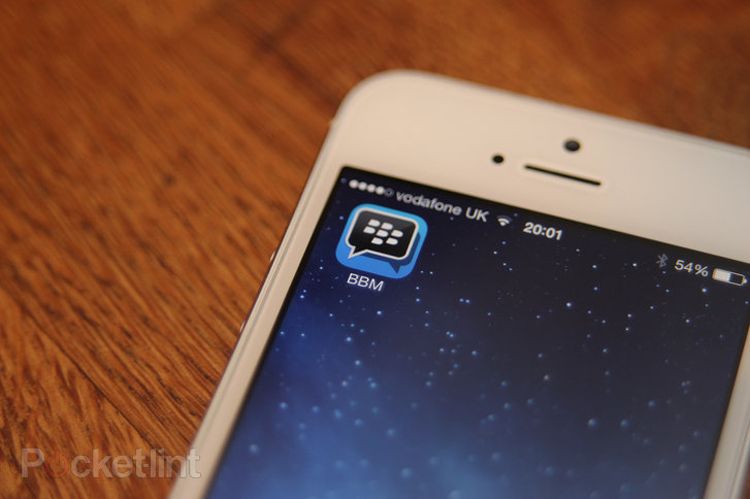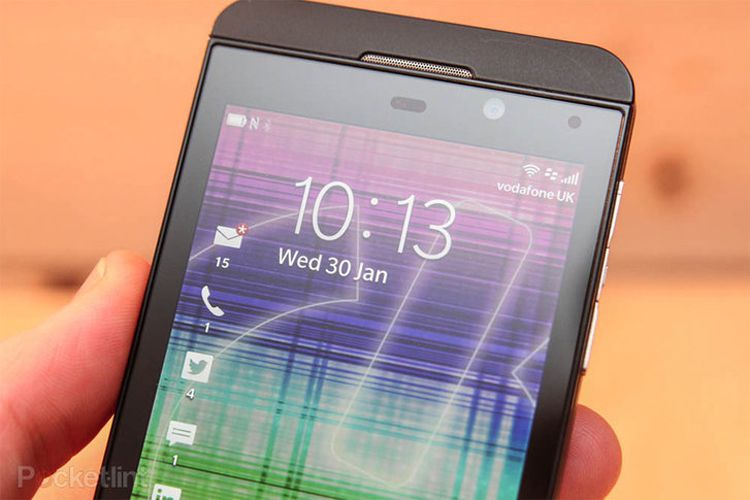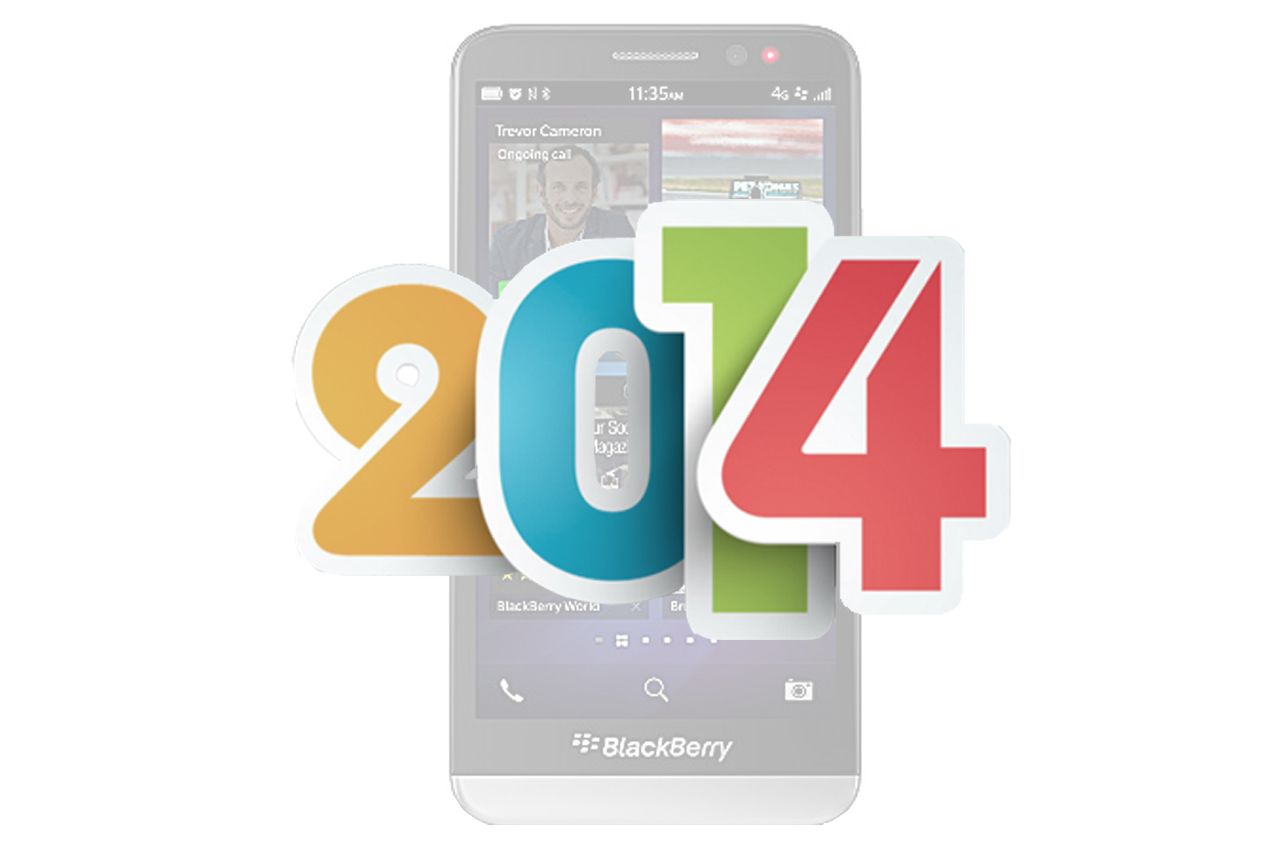BlackBerry is struggling. Not just a little, but a lot.
The Canadian company reported results for its financial Q3 2014 on 20 December, and it wasn’t good. Revenues reached $1.2 billion over the quarter, down a whopping 56 per cent from last year's $2.7 billion.
BlackBerry also revealed it sold 4.3 million smartphones last quarter. While that might seem a healthy figure, it is stunningly low when you consider it shipped 14.2 million smartphones in the equivalent quarter two years ago .
Beyond a poor performance for the quarter, BlackBerry has dealt with a host of other issues in recent months. It abandoned a plan to sell itself in November, and then it announced John Chen would replace Thorsten Heins as CEO.
The abrupt executive shift sparked a nosedive in share price and stoked fears that BlackBerry would soon throw in the towel. But that hasn’t happened yet, and the company’s new CEO seems to think it won’t happen at all. In fact, he is optimistic about what lies ahead.
If you want to see what BlackBerry has up its sleeve for 2014, keep reading. Pocket-lint has rounded up all the predictions, rumours, speculation, and even the company’s own high hopes, below.
READ: BlackBerry CEO Thorsten Heins fired as company decides against buyout

BBM update
Exactly one day before posting results for Q3 2014, BlackBerry attempted to save face by giving a sneak peek at some new features coming to BBM in 2014.
BBM - also called BlackBerry Messenger - is app included on BlackBerry devices. It originally allowed messaging between BlackBerry users (and videocalls for BlackBerry 10 smartphones), though the service is now available to Android and iOS users through apps that released in October.
BlackBerry revealed on 19 December it would introduce a huge update to the Android and iOS version of BBM in 2014. Namely, BBM will gain free voice calling to any BBM contact worldwide with no long-distance fees.
Other upcoming features include Channels, BBM's chat room service, as well as photos, voice notes, location sharing, and new set of emoticons. These changes would bring BBM up to par with rival messaging solutions such as Skype, WhatsApp's voice messaging, Google Voice calling in Hangouts, and more.
BBM has roughly 80 million monthly users since the app launched on iOS and Android devices, so it would make sense for the company to capitalise on the success.
According to The Wall Street Journal, Chen sees BBM as a crucial asset to BlackBerry’s portfolio. He told analysts BlackBerry might even consider charging users on a monthly rate, or something similar, as long as enterprise users adopted BBM as a messaging client.
“I would not rule out the monetisation from an advertising model, but I think we’re very far away from knowing how to do it,” Chen said. “It’s not without difficulties, as you all know, but it’s something that we’re very interested in trying.”
READ: BBM for Android and iPhone will add free voice calling in 2014

Foxconn deal
BlackBerry's new CEO has ideas other than BBM that could breath new life into the company, and one of those is a recently announced deal with Foxconn. It's a manufacturer famous for making Apple's iPhone. BlackBerry and Foxconn revealed on 20 December that they had signed a five-year deal to create a new smartphone.
The first smartphone from Foxconn with BlackBerry branding should land in March or April 2014 and will be a 3G device running BlackBerry 10. BlackBerry will launch the handset in Indonesia first, indicating the company plans to tackle the budget smartphone sector in developing markets, though Chen said it would focus on another six or seven markets later. This strategy should help BlackBerry both find a financial foothold and minimise financial risk.
"Partnering with Foxconn allows BlackBerry to focus on what we do best - iconic design, world-class security, software development and enterprise mobility management - while simultaneously addressing fast-growing markets leveraging Foxconn's scale and efficiency that will allow us to compete more effectively," said Chen in a conference call with analysts.
BlackBerry wants to get its finances back on track, Chen suggested, and then it can eventually look at making "really cool, high-end" BB10-based devices. Of course, to even begin thinking that far down the line, BlackBerry needs to launch a successful smartphone with Foxconn. And the key factor to that handset's success will be price, especially since rival companies like Motorola are also aggressively targeting developing markets with low-cost devices.
READ: BlackBerry and Foxconn sign five-year deal to develop a new smartphone

No BB10 devices until March
BlackBerry confirmed to Pocket-lint in September that it would not launch any new BB10 devices until at least March 2014. The company emphasised that it would instead give priority to existing "prosumer" devices like the BlackBerry Z30, BlackBerry Z10, BlackBerry Q10, BlackBerry Q5.
The reason? BlackBerry likely wants to rein in spending during its current fiscal year, which ends in March. BlackBerry also wants to go back to its enterprise roots, pushing its business-first strategy and the services it was initially known for, rather than chasing an out-and-out consumer proposition.
Chen is determined to rebuild BlackBerry as more of a niche-geared player on the enterprise market of big government and corporate clients. The company's new BlackBerry Enterprise Service 10 platform, for instance, allows large clients to manage BlackBerry, Android, and iOS devices on internal networks.
The BlackBerry Z30 was BlackBerry's last BB10 launch for 2013, so that means the recently leaked C-series touch device, BlackBerry Z50, and BlackBerry Q30 Qwerty won't launch until after March 2014, if at all. According to a report from Phone Arena, BlackBerry is currently working on those last two devices.
The BlackBerry 250 is allegedly a 5.2-inch flagship with a quad-core processor, while the 4-inch BlackBerry Q30 is the company's second BB10 Qwerty device. Both devices are rumoured to be available later in 2014. This product roadmap would align with what BlackBerry told us last autumn.
READ: BlackBerry: No new BB10 devices till March

"We are very much alive, thank you."
Despite a string of issues, poor performances and company fallbacks, BlackBerry seems to think it is doing just fine. The media is quick to portray BlackBerry as if it is standing on its last leg, but CEO John Chen has claimed those reports are "greatly exaggerated".
Chen even published an open letter in December - addressing the future of BlackBerry - after the company took down its "for sale sign", replaced its CEO, and sought new funding. He said BlackBerry "is not for everyone" - but the company is still "very much alive, thank you".
He also repeated BlackBerry's current enterprise strategy. Specifically, he said going back to heritage and roots and delivering enterprise-grade, end-to-end mobile solutions, including handsets, cross-platform messaging, EMM solutions, and embedded systems, will help BlackBerry regain relevance.
The most interesting part of Chen's letter is that he admitted competing with iPhone and Android was a bad idea, so BlackBerry will now concentrate only on the growing enterprise sector and a niche subset of customers who enjoy the business-minded BlackBerry product.
It is safe to say BlackBerry isn't quite dead yet. And it has goals in mind that will help it to get back on top. Whether these plans or strategies will actually work has yet to be determined, though it is clear the company doesn't plan to roll over and die in 2014.
READ:BlackBerry CEO puts focus on handsets, cross-platform messaging

